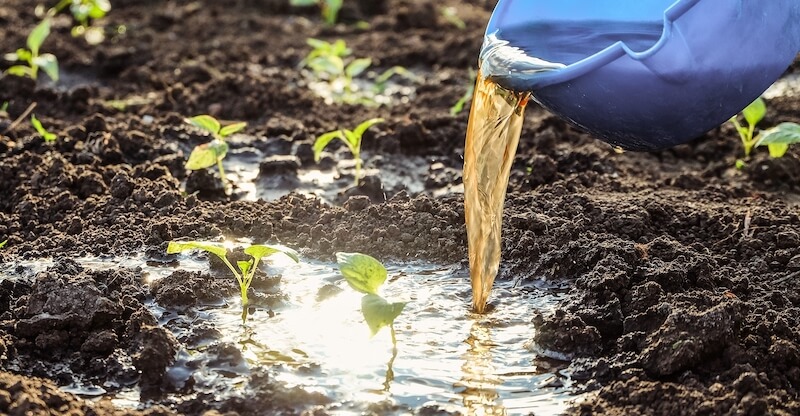
Compost tea, a water-based extract made by steeping compost, serves as an exceptional nutrient-rich fertilizer that can significantly enhance your garden's soil and plant health. It brims with valuable nutrients and beneficial microbes.
Two variations of compost tea exist: oxygenated and non-oxygenated. Oxygenated compost tea involves introducing air to the water while the compost steeps, fostering the proliferation of advantageous aerobic microbes like bacteria and fungi that assist in decomposing organic substances and converting them into plant-accessible nutrients. Non-oxygenated compost tea, on the contrary, is created by allowing the compost too steep in water without any added air. While still nutrient-dense, it may not possess as many beneficial microbes.
Microorganisms in compost tea are vital in fostering soil health and plant growth. Bacterial contained within the soil decompose organic substances and free up nutrients. Helpful fungi like mycorrhizae and trichoderma aid in enhancing soil texture and boosting nutrient absorption by plants.
Compost tea plays a pivotal role in nutrient cycling, an essential process for soil health. When organic substances are added to the soil, microbes break them down, releasing nitrogen, phosphorus, and potassium. These nutrients are then absorbed by plants, which add organic matter back to the soil upon dying and decomposing. This nutrient intake and release cycle is vital for maintaining fertile soil and promoting plant growth.
A complex network of microbes, fungi, and other living organisms inhabiting the soil, are indispensable to soil health and plays a critical role in nutrient cycling. The beneficial microbes contained in compost tea help build this Soil Food Web living right beneath our feet.

TCreating oxygenated compost tea involves some basic ingredients including compost, water, and a brewing container. Here's a detailed guide on preparing oxygenated compost tea:
The ingredients for non-oxygenated compost tea are simple and easily accessible.
Ingredients:
Optional ingredients:
Step-by-Step Method for Making Non-Oxygenated Compost Tea
Compost tea is an excellent medium to improve soil health and support plant growth. Whether you opt for oxygenated or non-oxygenated compost tea, the beneficial microorganisms in the tea will contribute to improved soil structure, promote nutrient cycling, and enhance the soil food web's health.
Compost Tea - Article Posted Sept 24, 2023